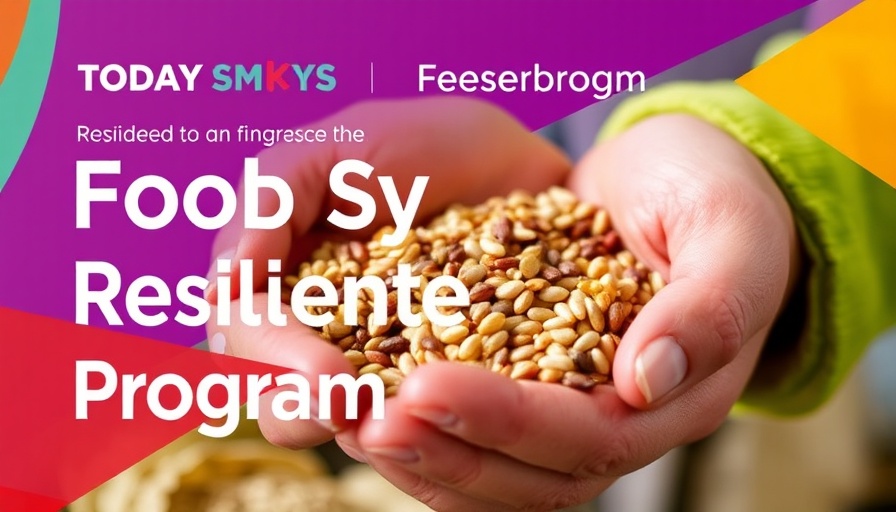
The Rise of Food Systems Resilience in Africa
The inaugural High-Level Learning Event on the Food Systems Resilience Program (FSRP) for Eastern and Southern Africa is poised to take place from March 4-6, 2025, in Addis Ababa, Ethiopia. This pivotal gathering, organized by the African Union Commission, IGAD, and other regional partners, aims to address the pressing challenges of food insecurity affecting over 700 million people across 26 countries in the region.
Understanding the Food Systems Challenge
Food insecurity in Eastern and Southern Africa is driven by numerous factors including climate change, conflict, and inadequate agricultural productivity. According to the World Bank, these challenges necessitate a coordinated approach where investments in agricultural resilience can significantly improve food access and economic stability. The FSRP, with an expansive budget of USD 2.75 billion over several phases, aims to bolster this resilience by fostering innovation and investment in agrifood systems.
Key Highlights of the Learning Event
This event promises to be a cornerstone for knowledge exchange and policy influence. Key highlights include:
- Showcasing Progress: Participants will review the achievements of the FSRP thus far, emphasizing successful interventions that have proven effective in enhancing resilience.
- Knowledge Exchange: Experts will share best practices and lessons learned from various facets of food security initiatives, aiming to establish a bank of strategies from which all stakeholders can draw.
- Policy Influence: By linking evidence generated through the FSRP to national and regional policies, the event strives to ensure that successful strategies are adopted at a larger scale.
- Digitalization and Trade: Discussions will also explore how digital technologies and increased trade integration can reinforce food systems in the region, marking a shift towards embracing modern solutions like blockchain and IoT for agricultural supply chains.
Innovative Solutions for Improved Resilience
The use of cutting-edge technologies such as AI, data analytics, and robotics is transforming agriculture across the continent. From automated irrigation to predictive analytics in crop management, these innovations are critical in advancing agricultural productivity and sustainability. As agritech grows, the demand for digital skills among the workforce will escalate, highlighting the importance of tech education and training as a pathway to economic growth.
Embedding Sustainability in Food Systems
The FSRP emphasizes sustainable practices that not only increase production but also protect natural resources. This dual focus on enhancing food productivity while safeguarding ecosystems is vital, particularly in a region where agriculture is the main livelihood for millions. Investments in renewable energy and smart farming technologies will play a crucial role in ensuring that agricultural advancements do not come at the expense of environmental integrity.
Looking Ahead: Future Challenges and Opportunities
As the event unfolds, one of the significant discussions will likely revolve around the evolving challenges posed by climate change and economic instability. The collective response of governments, policy influencers, and tech innovators will be crucial in crafting adaptive measures that not only respond to immediate food security needs but also empower communities for the long term. Strengthening regional partnerships is essential for sharing burdens and leveraging resources to build more resilient food systems.
Conclusion: The Path Forward
The **First High-Level Learning Event** represents a crucial step toward establishing resilient food systems in Eastern and Southern Africa. As stakeholders converge in Addis Ababa, the potential for collaborative solutions to emerge is significant. To participate in future discussions or learn about advancements in food systems resilience, stay engaged with the ongoing developments and exchanges taking place across the region.
 Add Row
Add Row  Add
Add 




Write A Comment